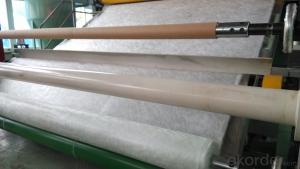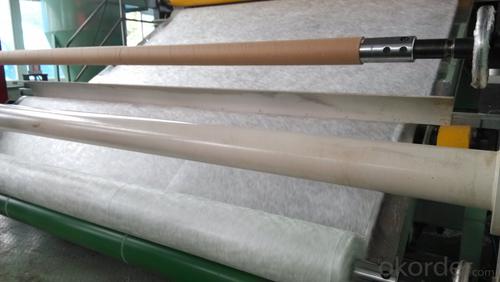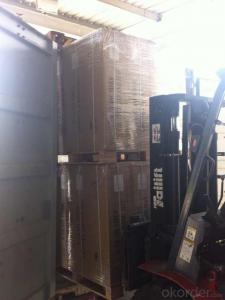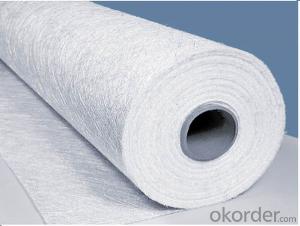Fiberglass Mat Tissue E-Glass Emulsion Chopped Strand Mat
- Loading Port:
- China Main Port
- Payment Terms:
- TT OR LC
- Min Order Qty:
- -
- Supply Capability:
- -
OKorder Service Pledge
OKorder Financial Service
You Might Also Like
E-Glass Emulsion Chopped Strand Mat |
E-Glass Emulsion Chopped Strand Mat is made of randomly distributed chopped strands held tighter by a emulsion binder. It is compatible with UP, VE, EP resins. The roll width ranges from 50mm to 1270mm. special requirements may be available upon request. |
Area Weigh(g/m2) | Roll Width(mm) | Resin Compatibility | Product Features | Applications |
225, 300, 450, 600, 900 | 1040, 1270,1524 | UP, VE, EP | High tensile strength, allowing for use in hand lay-up process to produce large-area parts; No airborne fiber when operating; Good wet-through and fast wet-out in resins, rapid air lease; High mechanical strength; Superior acid corrosion resistance | hand lay-up, filament winding, compression molding and continuous laminating processes |
225, 300, 450, 600, 900 | 1040, 1270,1524 | UP, VE, EP | Good conformability; Good wet-through and fast wet-out in resins, rapid air lease, reducing rolling out time and increasing productivity; Low resin consumption; High mechanical strength of the conposite product; Superior acid corrosion resistance | hand lay-up, filament winding, continuous laminating |
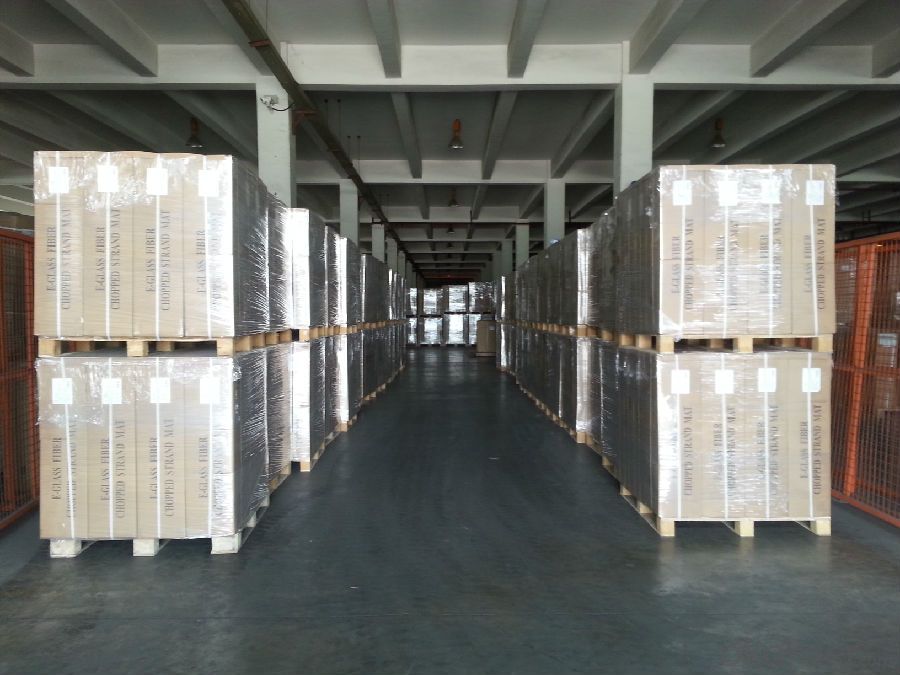
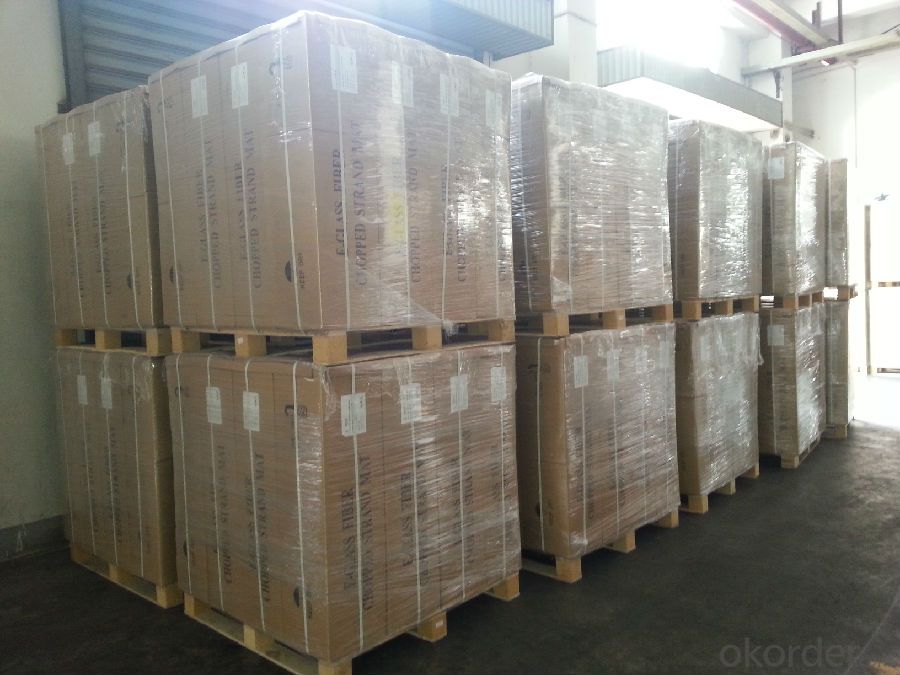
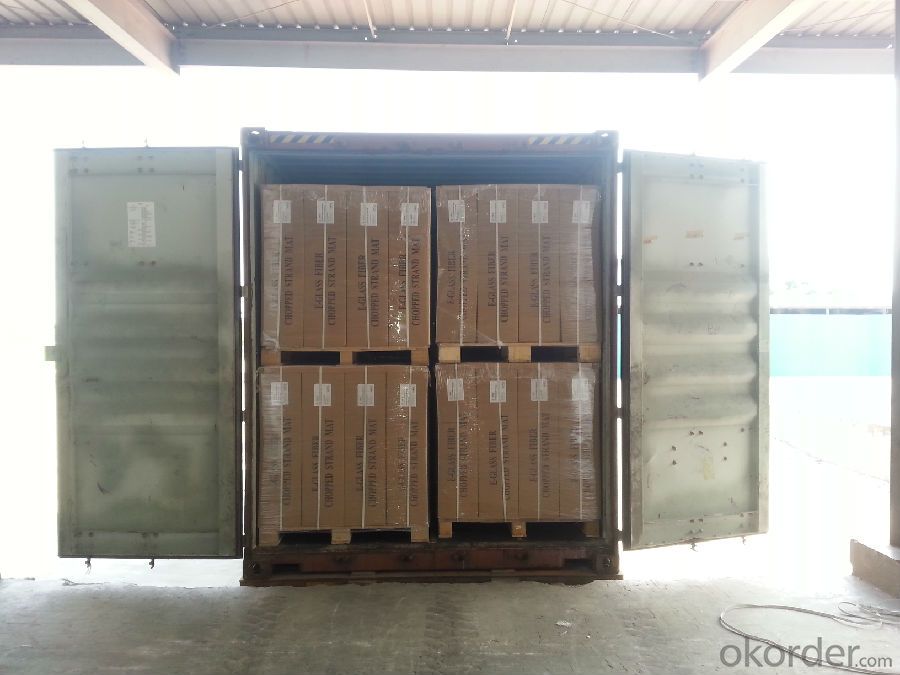
- Q: Can fiberglass mat tissue be used for insulation in oil refineries?
- Yes, fiberglass mat tissue can be used for insulation in oil refineries. It is commonly used due to its excellent thermal insulation properties, resistance to high temperatures, and resistance to chemical corrosion.
- Q: How does fiberglass mat tissue perform in terms of UV resistance?
- Fiberglass mat tissue generally has good UV resistance. UV resistance refers to the ability of a material to withstand the harmful effects of ultraviolet radiation from the sun without degrading or deteriorating. Fiberglass mat tissue is usually manufactured using a combination of fiberglass and a binder material, which provides strength and integrity to the tissue. The fiberglass component in the mat tissue provides inherent UV resistance. Fiberglass is known for its durability and ability to resist degradation from UV exposure. It is a non-porous material that does not absorb UV radiation, making it less susceptible to damage caused by the sun's rays. Additionally, some manufacturers may apply a UV-resistant coating or treatment to the fiberglass mat tissue to enhance its UV resistance. This coating or treatment can further protect the tissue from the damaging effects of prolonged exposure to UV radiation. Overall, fiberglass mat tissue performs well in terms of UV resistance. It is a durable material that can withstand the harmful effects of UV radiation, making it suitable for applications where prolonged exposure to sunlight is expected. However, it is important to note that the specific UV resistance of fiberglass mat tissue may vary depending on the manufacturing process, quality of materials used, and any additional coatings or treatments applied.
- Q: Is fiberglass mat tissue suitable for insulation in cold storage facilities?
- Yes, fiberglass mat tissue is suitable for insulation in cold storage facilities. It offers excellent thermal insulation properties and is commonly used in such environments to maintain low temperatures and prevent heat transfer. Additionally, fiberglass is resistant to moisture, which is important in cold storage facilities where condensation can occur.
- Q: What are the different surface finishes available for fiberglass mat tissue?
- There are several different surface finishes available for fiberglass mat tissue, each with its own unique properties and benefits. One common surface finish is a smooth or fine finish, which provides a smooth and even texture to the fiberglass mat tissue. This finish is often used when a high-quality surface appearance is desired, such as in cosmetic applications or when the fiberglass mat will be painted or coated. Another option is a textured or coarse finish, which adds texture and grip to the surface of the fiberglass mat tissue. This finish is often used in applications where increased friction or traction is required, such as in flooring or decking materials. A third option is a fire-retardant finish, which is designed to provide increased fire resistance to the fiberglass mat tissue. This finish is commonly used in applications where fire safety is a concern, such as in building materials or insulation. Additionally, there are finishes available that offer specific properties such as increased chemical resistance, UV resistance, or enhanced durability. These finishes are often used in applications where the fiberglass mat tissue will be exposed to harsh environmental conditions or chemicals. Overall, the choice of surface finish for fiberglass mat tissue will depend on the specific application and desired properties. By selecting the appropriate finish, manufacturers can ensure that the fiberglass mat tissue meets the required performance standards and delivers the desired performance characteristics.
- Q: Is fiberglass mat tissue resistant to fading?
- Yes, fiberglass mat tissue is resistant to fading.
- Q: Can fiberglass mat tissue be used for insulation in chemical storage tanks?
- Yes, fiberglass mat tissue can be used for insulation in chemical storage tanks. It is a commonly used material due to its excellent thermal insulation properties and resistance to corrosion, making it suitable for protecting the tank and its contents from extreme temperatures and chemical reactions.
- Q: Does fiberglass mat tissue provide any sound insulation?
- Yes, fiberglass mat tissue does provide sound insulation. It is a common material used in various industries, including construction and automotive, to absorb and reduce sound transmission. The fibrous structure of the material helps to trap and absorb sound waves, preventing them from passing through walls or other surfaces. Fiberglass mat tissue is often used as an acoustic insulation material in walls, floors, and ceilings to create a more comfortable and noise-free environment.
- Q: Can fiberglass mat tissue be used for electrical insulation?
- No, fiberglass mat tissue cannot be used for electrical insulation.
- Q: Can fiberglass mat tissue be recycled?
- Yes, fiberglass mat tissue can be recycled. Fiberglass is made from a combination of glass fibers and resin, and both components can be reused. The recycling process involves separating the glass fibers from the resin, often through a mechanical grinding or melting process. The separated fibers can then be used to make new fiberglass products, such as insulation, roofing materials, or even new fiberglass mat tissue. Recycling fiberglass helps to reduce the environmental impact of this material by diverting it from landfills and conserving resources. However, it is worth noting that the recycling process can be complex and costly, so not all recycling facilities may accept fiberglass mat tissue.
- Q: Can fiberglass mat tissue be used for insulation?
- Fiberglass mat tissue can indeed be utilized for insulation purposes. It finds widespread application within the construction sector, serving as an effective material for thermal and sound insulation. Comprised of delicate glass fibers intricately woven into a mat-like formation, this tissue structure effectively captures air, establishing a barrier that minimizes heat transfer. Consequently, it ensures insulated spaces retain a pleasant temperature. Moreover, fiberglass mat tissue boasts resistance against moisture, fire, and pests, rendering it an excellent insulation option across diverse situations.
Send your message to us
Fiberglass Mat Tissue E-Glass Emulsion Chopped Strand Mat
- Loading Port:
- China Main Port
- Payment Terms:
- TT OR LC
- Min Order Qty:
- -
- Supply Capability:
- -
OKorder Service Pledge
OKorder Financial Service
Similar products
Hot products
Hot Searches
Related keywords
